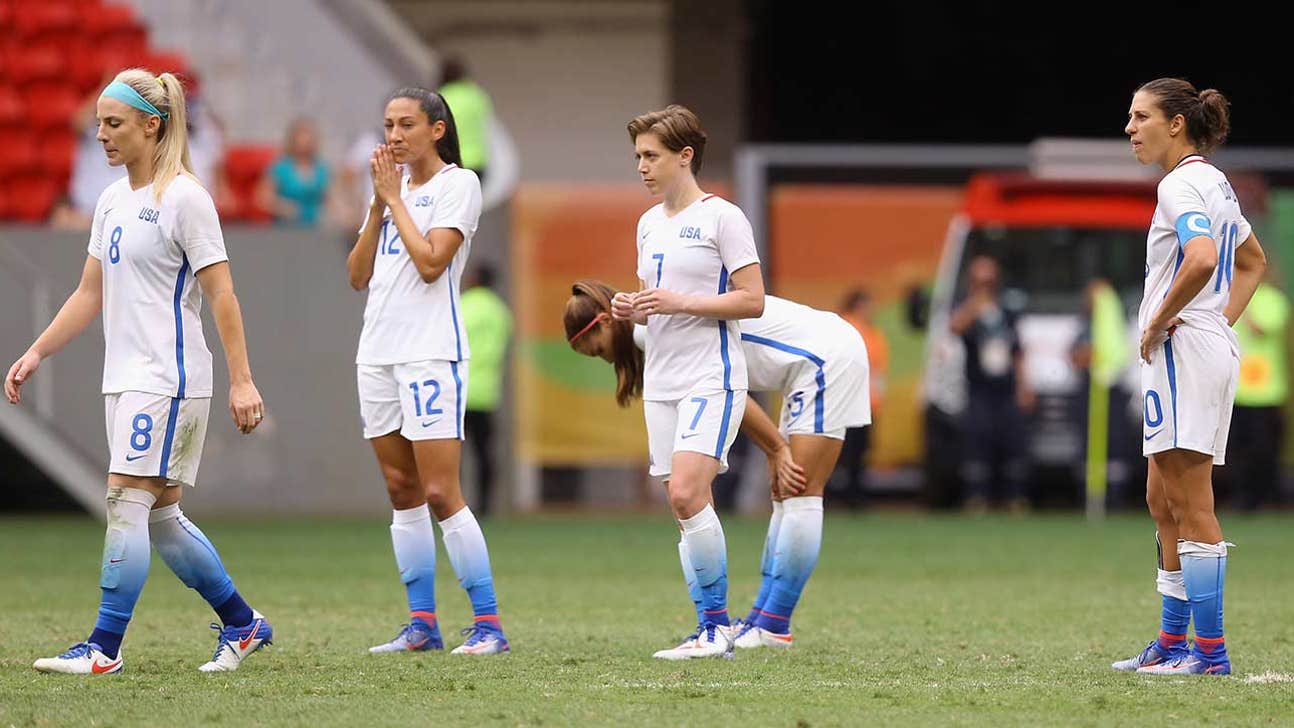
3. U.S. women fail at Olympics, but fight for off-field victories
The history is stark: No reigning Women’s World Cup champion has ever gone on to win the Olympic gold medal a year later. That was the challenge facing the U.S. women’s national team in 2016 after raising the World Cup trophy a year earlier. But there’s a reason why no women’s team has done the double, as Megan Rapinoe argued: Everything that goes into winning a World Cup—and the publicity deluge that follows—makes it really, really hard.
And so it went for the USWNT, which fell to Sweden on penalty kicks in the Olympic quarterfinals and failed to reach the semifinals of an Olympics or World Cup for the first time in the team’s storied history. Goalkeeper Hope Solo called the Swedes “cowards” for their park-the-bus approach and eventually was suspended for six months by U.S. Soccer for what it said was a series of transgressions.

Ultimately, the U.S. women’s team’s 2016 will be remembered as much for what happened off the field as for what took between the lines. Rapinoe became the most prominent white athlete to support Colin Kaepernick’s protest of police treatment of black Americans, taking a knee during the national anthem—and raising the stakes by doing so while representing the U.S., not just her club team.
Then there was the wage discrimination case brought by the U.S. women’s players against U.S. Soccer, charging that they deserved equal pay to the U.S. men’s team. At a time when equal pay for women is a hot-button topic in the country at large, the U.S. players drew plenty of support, but it remained to be seen if they would win their EEOC case. With collective bargaining talks continuing and the old agreement set to expire on December 31, a work stoppage loomed as a possibility in 2017.
